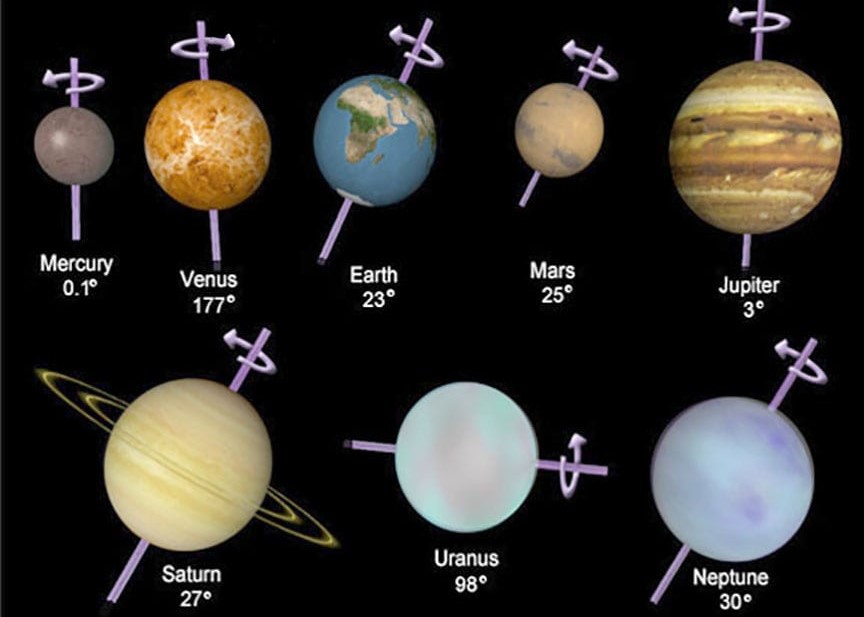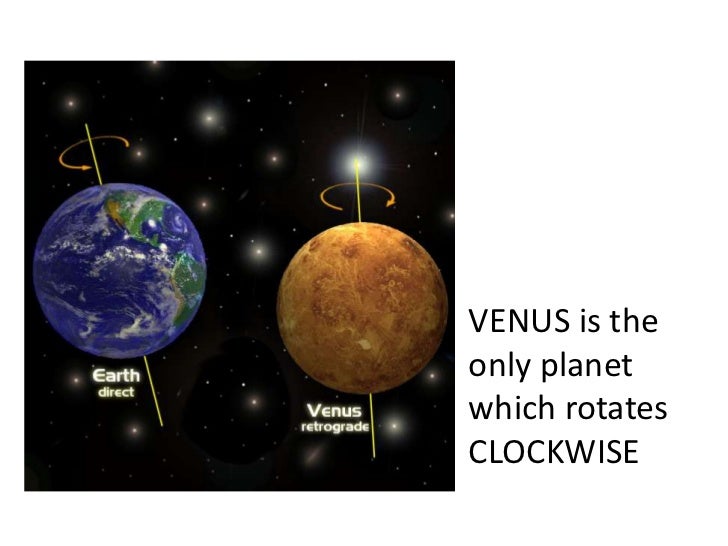Venus is the only planet to spin clockwise

Venus is the Only Planet to Spin Clockwise

When we think about planets in our solar system, it’s easy to assume that they all spin in the same direction. However, Venus, the second closest planet to the sun and our neighbor, is unique in this regard. It is the only planet that spins clockwise. This fact has fascinated scientists for many years, leading them to explore the underlying reasons behind this eccentric behavior.
To understand why Venus spins differently from the other planets, we need to delve into some scientific aspects. The conventional way planets rotate is counterclockwise when viewed from above the North Pole. This motion, known as prograde rotation, is observed in all the major planets, including Earth, Mars, Jupiter, and Saturn.
In contrast, Venus bucks the trend with its opposite rotation, known as retrograde rotation. This means that if we could observe Venus from above its North Pole, it would appear to be spinning clockwise. This peculiar behavior puzzled astronomers for quite some time.
Scientists have put forward several theories to explain Venus’s unique rotation. One prominent hypothesis suggests that Venus experienced a cataclysmic event in its early history, such as a massive impact with another celestial object. This collision could have caused Venus to spin in the opposite direction. While this theory seems plausible, further research is still needed to support or refute it conclusively.

Another theory proposes that Venus’s rotation may have undergone a complex process called tidal locking. Tidal locking occurs when a planet’s rotation slows down over time due to its gravitational interaction with another celestial body, such as the sun or a nearby large moon. This process eventually leads to the planet’s rotation aligning with its orbital period, resulting in a synchronized rotation. However, this theory doesn’t entirely explain Venus’s retrograde rotation and requires further investigation.
Moreover, it’s important to note that Venus’s dense atmosphere also plays a significant role in its rotational behavior. The planet’s dense cloud layers create strong atmospheric tides that may influence its rotation. These atmospheric tides can slow down or speed up the rotation depending on their direction, potentially contributing to Venus’s unusual spin.
In conclusion, Venus’s clockwise rotation sets it apart from the other planets in our solar system. Although scientists have proposed various theories, such as a past collision or tidal locking, the exact cause of this unique phenomenon remains uncertain. Further research and exploration of Venus will help us uncover more insights into its peculiar rotation and unravel the mysteries of our neighboring planet.
Source: Scientific American
Related Posts
Quick Links
Legal Stuff

